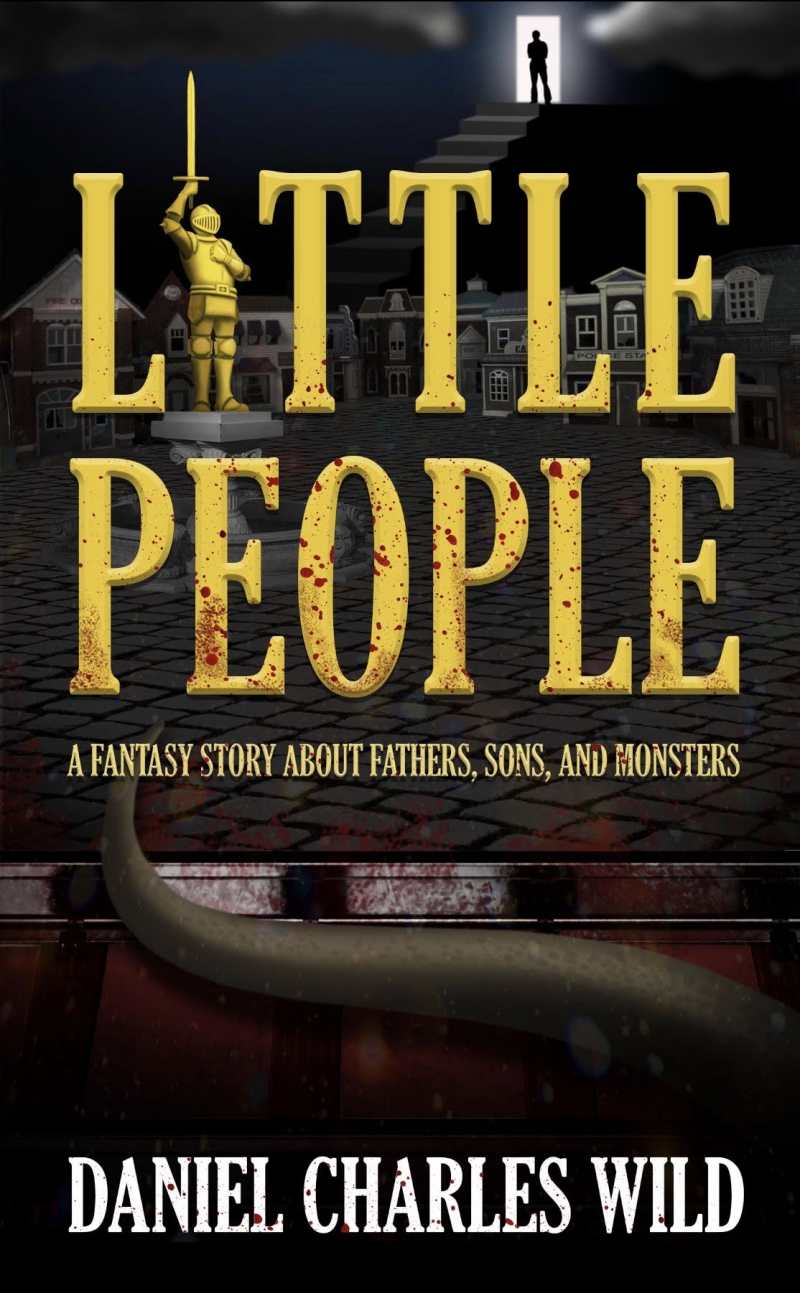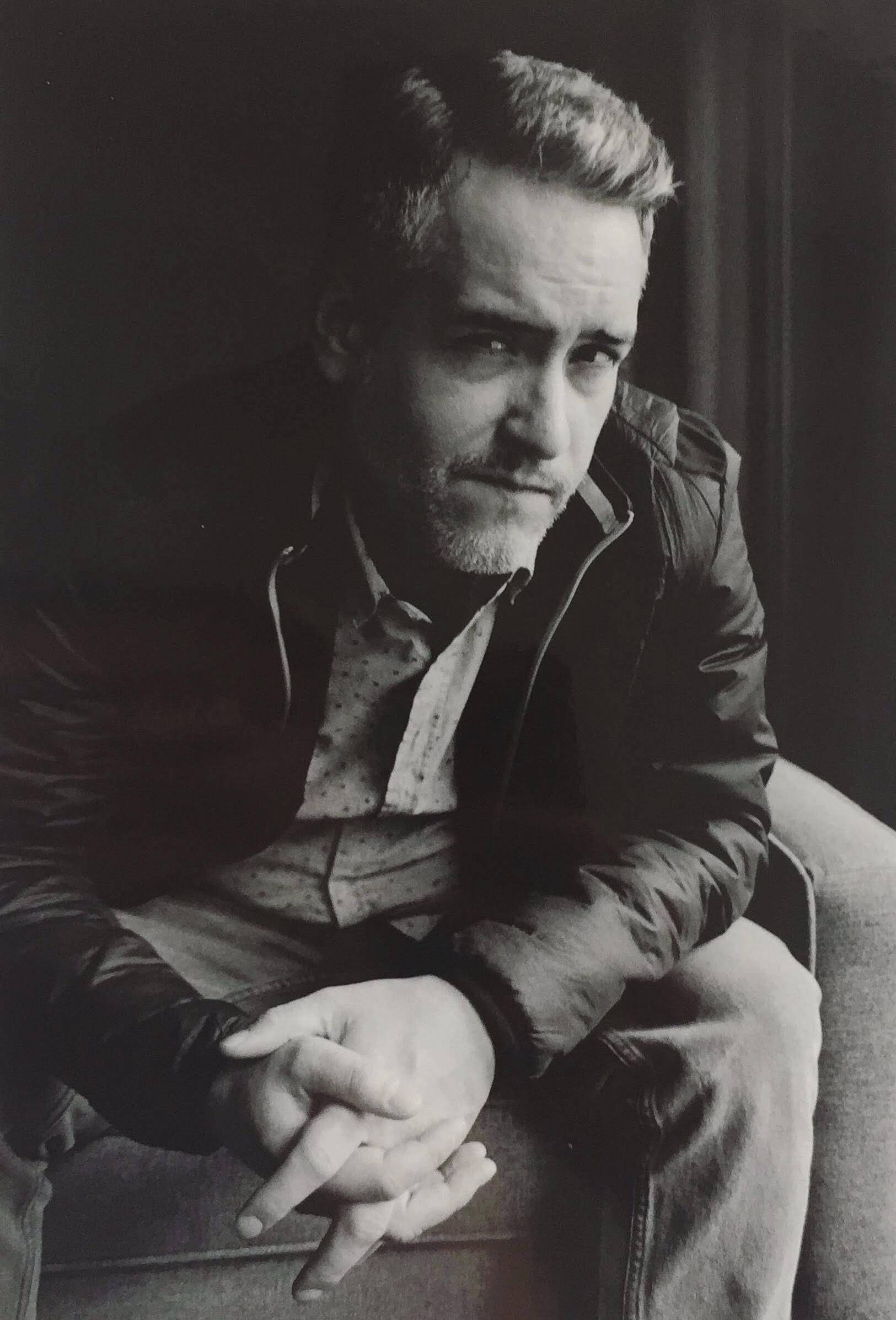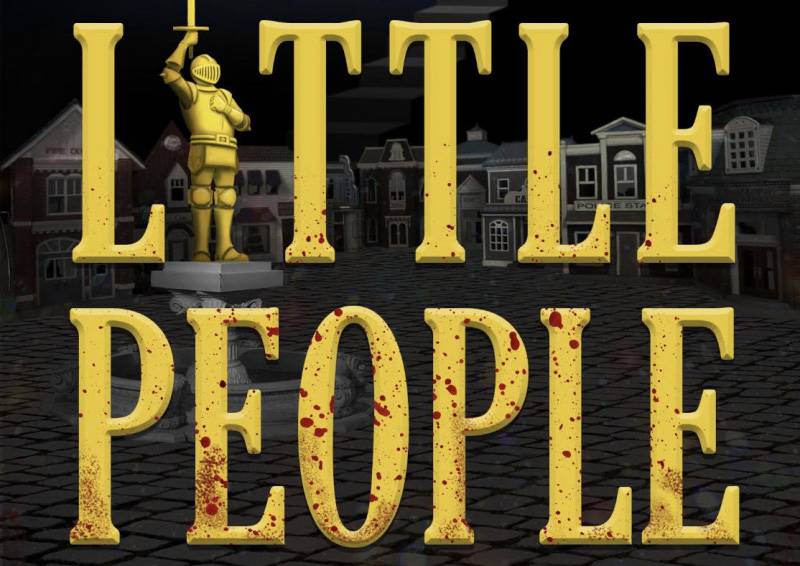One of the most under appreciated and consistently disappointing parts of living in Champaign-Urbana is how little attention we seem to give to our robust collection of authors, poets, publishers, journalists, and screenwriters who’ve called this place home. I’d list them all here, I really would, though there’s not enough space to get through it all. But I can assure you, we have them, and they are decorated and in some cases, absolutely changed the world. If that sounds like hyperbole to you, I am totally okay with that. Google search Iris Chang or Richard Powers, just as a start. You will see.
Inside of that disappointment, however, is a reminder that living among us are a collection of deeply talented scribblers, all working and publishing on a regular basis. Most of them are attached to the University of Illinois’ Department of English, of course, as you might expect. Others to WILL, The News-Gazette, and the like. But there are others, as well, and in places that you might least expect.
We’ve profiled this amazing artist before, but not as an writer. Dan Wild is one of the designers and creative thinkers who fill up our billboards around town, and most likely, if you’ve seen one that makes you say to yourself “Oh, that’s a good one!” you are probably assigning a compliment to him and his work. He’s also a cartoonist, and works wonders with his attention to detail.
What you likely didn’t know, and what I sure as hell didn’t know either, is that Wild is also a published author, and a damn fine one to boot. I stumbled upon his book unexpectedly when he handed it to me last month. It is short at just 80+ pages, and hits you like a punch to the gut from the moment it begins. The writing has depth. His use of syntax is deliberate and well designed, much like his visual artwork. His ability to weave a tale is succinct.
And this is a tale worthy of Odysseus; a modern fantasy that is intended to help us solve our innermost pain. And if that is hyperbolic as well, it is intentional. At times, we’re left with few literary devices and examples to point to describing how something affects us.

Writing about fantasy and absurdism is always a risk. There’s so many ways to muck it up, and go from playful and unique to overwrought and pedantic. Failure is easy in this genre because part of writing a story in this way effectively is toeing the line between pragmatism and fearlessness. To ask a reader to suspend their disbelief beyond what they normally can manage is truly demanding. It’s high risk / high reward work.
One of the reasons that I couldn’t put down Little People the moment I picked it up is simply because of the way it succeeds within the first 1000 words; it asks the reader to consider how the universal pain of being a child is compounded when the selfish nature of becoming an adult works against the family, and not for it. Before we learn anything about the plot, we’re already devastated and willing to accept that the narrator needs to tell us about what has happened to him. How can he possibly survive and grow up to live with a sense of confidence that this won’t happen again? Will the world he needs to build in order to feel whole come crashing down, yet again?
That idea runs through the entirety of the story, from the painful and sympathetic beginning to the terrifying and dramatic conclusion. The piece of us that is suited to survival is generally only as available to us as our circumstances allow. If one of our parents end up deceased before we grow up, we create space for that absence in our heart, and fill it. When we lose a job or a friend, we assign the opportunity to get new ones. From what I have been told, when some force is literally trying to kill you or your family, you will instantly go from prey to predator, and find a path towards survival. Kill or be killed. Flight or fight. This is basic.
Embedded inside of this deeply epic tale of loss and reconciliation is the idea that self reliance and its enduring spirit will shadow you no matter what you do or who you are. It’s true that we need one another to survive; we’re not much without the person next to us. But in the end, you go to sleep and wake up with just yourself and your thoughts, and there’s no amount of encouragement or love that can truly force a person to fight to survive a trauma. Indeed, it comes from within, and it is a personal choice.
There is a particular moment in the story where the reader is asked to consider the nature of their own humanity in a new and microcosmic way: Are we truly resilient enough to fight to the death to protect ourselves, our homes, and our families?
It’s worth the read to help yourself find out what that moment is. That it is an 80 pager and was written by an artist local to Champaign-Urbana should make it a simple answer.
Being as impressed and inspired as I was, I was compelled to ask the author a couple of salient and pointed questions. They are questions you might have after reading the book as well, so my suggestion is to stop here, get the book, read it and then return to this article to discover more about some of the autobiographical nature of the book. It’s insightful and heartbreaking and deeply important as far as understanding how the story came to be.

Smile Politely: How much of this story is autobiographical? Elements? Nothing? Some of it?
Dan Wild: Little People stems from my childhood. My father hurt me and our family in various ways. We hurt him too. My parents split up when I was three, and like the story’s protagonist, my earliest memories are of my family breaking apart. From the stairwell landing, I too looked down at my father crying on the sofa. As a child I only saw him a handful of times. Then I didn’t see him for six or seven years, and then, just like the father in the story, he was suddenly gone forever.
For years I believed my father’s willful absence had taken something from me, perhaps crippled me. He didn’t break my arm like the father in the story, but he did break my heart. I don’t know which is worse. I’ve long thought that a child willfully deprived of a father’s love is handicapped in a way that takes decades to fully grasp. Like a three-legged dog, the child is initially oblivious of what‘s missing but still off-balance, and forced to unconsciously overcompensate for the loss of support, to do more with less. Everything is a little harder.
Still, I’ve seen three-legged dogs. They balance on the legs they have left. Their remaining limbs grow stronger. They seem pretty happy. Their tails still wag, and a fast-enough limp is indistinguishable from a run when you’re racing toward the people who love you.
Smile Politely: When you started writing the book, what was your primary inspiration?
Wild: A few months back, I surprised my friends and family by self-publishing Little People: A Fantasy Story About Fathers, Sons, and Monsters. This novella was partially inspired by true events and started as a writing prompt I posted on Reddit. I post a lot on that site, including these short story ideas, and sometimes my prompts prompt me. This one received a ton of upvotes, and a dozen writers submitted short stories based on it. I posted the first chapter of a little story that just kept getting bigger and more personal, until it grew up to become a novella.
Writing this story helped me indirectly confront and express some of those thoughts and feelings about my father. Like the main character, I visited my father’s empty house five days after his funeral. I was accompanied by my two brothers, but in my memory, I could barely hear what they were saying, and though they were right beside me, they seemed small and far away. I was 19, and I got to know my mysterious father indirectly by going through the things a person leaves behind. There was no trainset, but I found his small inner world of newspaper clippings, his writing, a medallion of a knight fighting a dragon, and photos of our family—photos of us. My father’s interior life was richer and more complex than I had imagined. I entered it and saw the life he had created for himself and hints about the things he loved.
Assisted by these clues, I started to better understand the man he had been and the battles he fought. Over time I have come to realize that his choices made me who I am, that he shaped me in his absence. I forgive him, and I’m trying to love and even admire him. As my dark hair has grayed prematurely, more and more, I even look like him. Though, I am convinced that my sensitive nature would have been snuffed out if he had been more present in my life. I am my own man, and I have tried to protect my own world of precious things. Doing so requires that I descend into myself at times, seeking answers and searching for the things that hide in the dark. I have small monsters of my own to battle, ones that at times look like his. Still, I am armed with the weapons his absence gave me: creativity, empathy, and introspection.
Little People is available online, or better yet, at Jane Addams Books in Downtown Champaign. There, you can also find his other collection of short horror stories, Horrible Writing.
Images courtesy of Dan Wild








